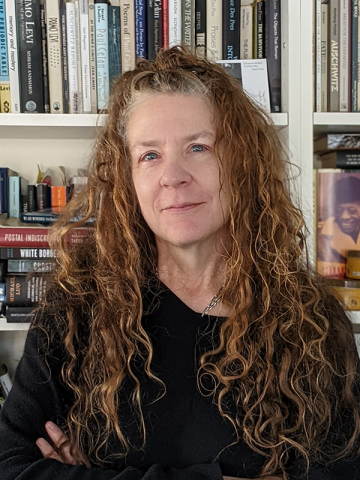
The Institute for Trauma, Adversity, and Resilience in Higher Education
The Institute for Trauma, Adversity, and Resilience in Higher Education
With more than 20 years of teaching experience in both traditional academic institutions and nontraditional settings such as prisons and homeless shelters, she feels she has found her niche at community college.
“The mission of the community college is open access. It is the vanguard of defining what higher education’s role is in this country. Community college faculty are agents of social change. Teaching here is an excellent fit for me. Principally, my role here ties up the threads of my own life — education, writing, and social justice.”
Those threads are woven into a rich tapestry that has made Tietjen a leader in trauma-informed education. She is founder and director of MassBay’s Institute for Trauma, Adversity, and Resilience in Higher Education.
Advocating for, and focusing on, this important educational issue was not the California native’s initial professional goal. Raised in the Midwest, her academic start, like many of her students, was derailed by economics. Tietjen worked full-time before regrouping and earning her Bachelor of Arts degree in Writing and African American Studies from the University of Washington Seattle.
A Clinton administration arts and services project took her to Washington D.C. where she taught individuals in homeless shelters and prisons. She co-edited a book, “I Have Arrived Before My Words,” which features the autobiographical stories of seven homeless women.
“That experience taught me the power of voice and how profoundly connected humans can be to one another through writing. I also learned that listening to someone is so important.”
She arrived in New England to study for her Master of Fine Arts degree at UMass Amherst. Having studied the representation of trauma in literature, she took her talents to a treatment facility for traumatized adolescent girls. Tietjen, who had her own list of impressive mentors, was compelled to do more. “I saw the transformative power of an educational setting and it made me want to give back.”
While she has taught at other schools including Brandeis University, where she earned a doctorate degree in English Literature/Letters, and UMass Amherst, it is at MassBay where she feels most fulfilled.
“My students have enormously complex and complicated lives outside of school. When I first started teaching at MassBay, it was striking to me the proportion of students who wrote about traumatizing events—from an earthquake in Haiti, to violence in the home, to family dysfunction and addiction.”